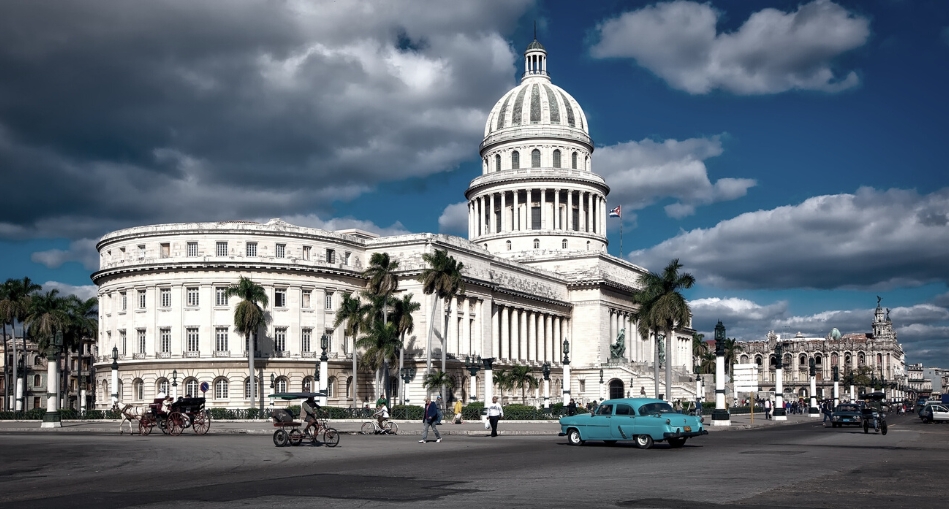Can Cuba’s Democratic Legacy Be Recovered?

Communist Cuba underwent its fourth Universal Periodic Review (UPR) on November 15, 2023, at the UN Human Rights Council, a process Havana repeatedly subverted since 2009 by using front groups to drown out critical human rights reports by established human rights organizations.
Cuban Foreign Minister Bruno Rodriguez began the UPR session attacking Israel, went on to blame the Cuban dictatorship’s shortcomings on U.S. sanctions, and turned the review into a politicized circus.
Over 20 years, I’ve witnessed Cuban diplomats undermine international human rights standards, first at the United Nations Human Rights Commission and later at the UN Human Rights Council, making a mockery of human rights.
- On April 15, 2004 when the UN Human Rights Commission decided by a single vote to censure Cuba for its human rights record, a Cuban human rights defender attending the session, Frank Calzon, was physically attacked by a Cuban diplomat.
- On March 28, 2008 the Castro regime’s delegation, together with the Organization of Islamic Congress, successfully passed resolutions that turned the UN special rapporteur on freedom of expression into an investigator policing “abuses” of freedom of expression.
- On Feb. 2, 2009 during the Universal Periodic Review of China, Cuban Ambassador, Juan Antonio Fernandez Palacios, recommended that China repress human rights defenders with more firmness.
- On March 17, 2014 at the UN Human Rights Council, Cuban diplomats defended the North Korean regime’s human rights record.
- On Sept. 21, 2018 Cuban Ambassador to the UN, Pedro Luis Pedroso Cuesta, during the Universal Periodic Review on Cuba at the UN Human Rights Council stated that “our country will not accept monitors. Amnesty International will not enter Cuba and we do not need their advice.” Less than a month later, Cuban diplomats led an “act of repudiation“ at the UN shutting down a discussion on political prisoners in Cuba.
- On July 1, 2020 the Cuban dictatorship introduced a resolution at the UN Human Rights Council endorsing the death of a free Hong Kong and praising China for passing the Hong Kong National Security Law.
What the diplomats of Cuba’s communist dictatorship do in Geneva is horrible, but it pales compared to what they do to Cubans on the island.
Human rights defenders Oswaldo Payá and Harold Cepero were killed on July 22, 2012. On June 12, 2023, the Inter-American Commission on Human Rights confirmed that the two Cuban pro-democracy leaders were assassinated by Castro regime operatives.
On July 11, 2021 when Cubans across the island protested in huge numbers called for freedom, and an end to dictatorship. Raul Castro’s hand picked president, Miguel Díaz-Canel went on national television and gave the “order of combat.” Regime agents opened fire on unarmed Cubans, the number killed remains unknown due to regime repression, and lack of transparency, but the video of 36 year old singer Diubis Laurencio Tejeda shot in the back by police, and dying in his friends’ arms is devastating.
Artists Luis Manuel Otero Alcántara and Maykel “Osorbo” Castillo Pérez are imprisoned in Cuba today for authoring a song about “homeland and life.” The dictatorship has severely restricted artistic freedoms, passed laws outlawing criticism of the regime on the internet, and passed an even more draconian penal code that expands the death penalty.
Human rights defenders Felix Navarro and his daughter Sayli Navarro, who sought to ascertain the plight of detained Cuban protesters, were themselves arrested and sentenced to long prison terms. There are over 1,000 prisoners of conscience in Cuba.
It was not always this way.
A democratic Cuba helped draft the Universal Declaration of Human Rights 75 years ago. Carlos Prío Socarrás, Cuba’s last democratic president, was elected in free and fair elections and took office on October 10, 1948. President Prío valued human rights, as seen by the activities of his diplomats during the United Nations’ founding.
Cuba, Panama, and Chile were the first three countries to submit full drafts of human rights charters. Latin American delegations, especially Mexico, Cuba, and Chile inserted language about the right to justice into the Universal Declaration of Human Rights, in what would become Article 8.
Cuban delegate Guy Pérez-Cisneros addressed the UN General Assembly on December 10, 1948 proposing to vote for the Universal Declaration of Human Rights. The Cuban Ambassador celebrated that it condemned racism and sexism, and addressed the importance of the rule of law:
“My delegation had the honor of inspiring the final text, which finds it essential that the rights of man be protected by the rule of law, so that man will not be compelled to exercise the extreme recourse of rebellion against tyranny and oppression.”
Fulgencio Batista overthrew this democratic Cuba on March 10, 1952, Guy Pérez-Cisneros died of a stroke in 1953, and hopes for democratic restoration were dashed by the Castro brothers in 1959 when they imposed a communist dictatorship.
This shared democratic Cuban heritage that in 1948 made world history must be restored, and Cuban communism dumped on the garbage heap of history.
John Suarez is Executive Director of the Center for a Free Cuba.

